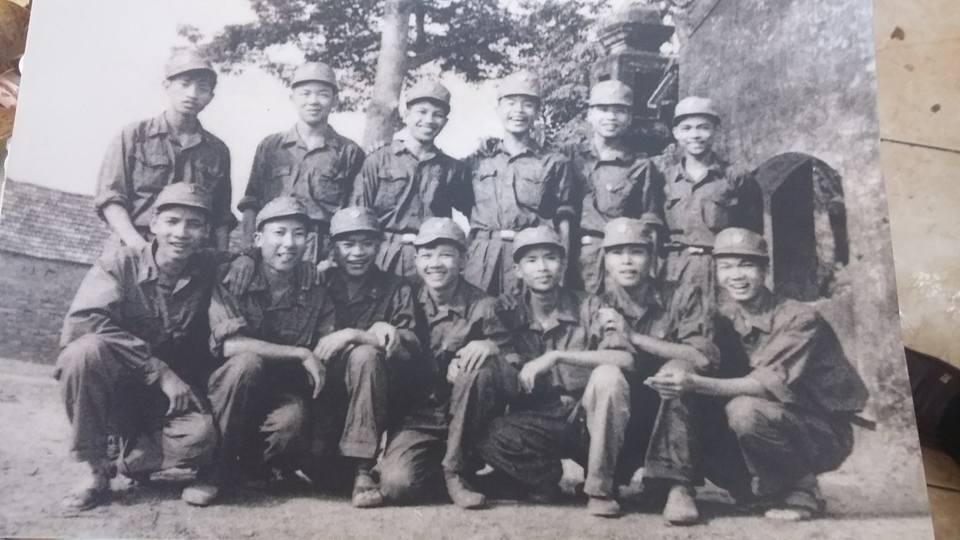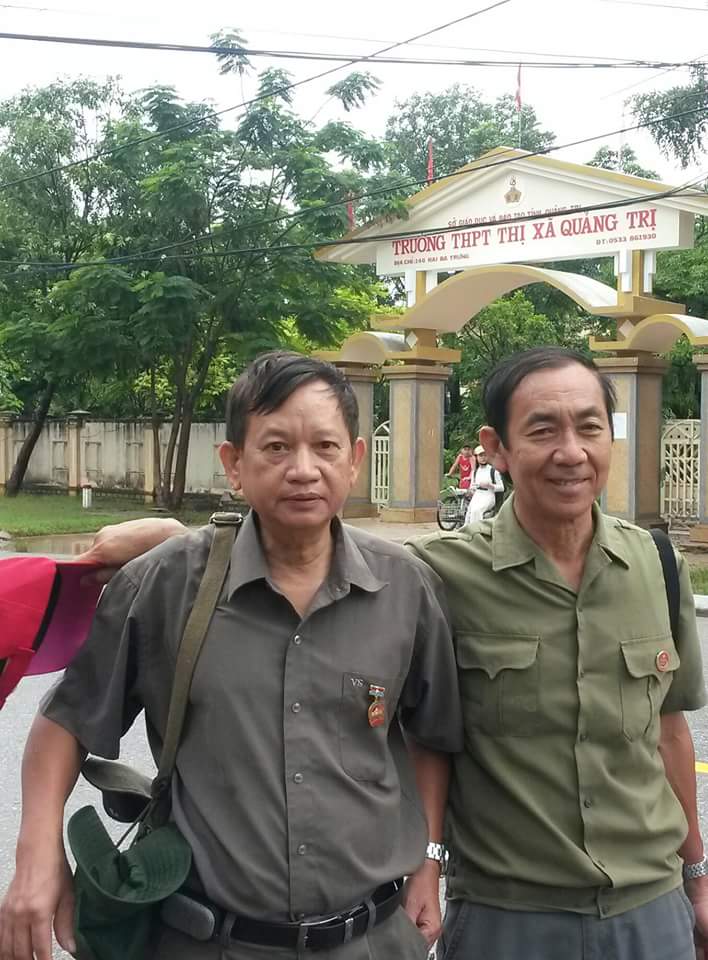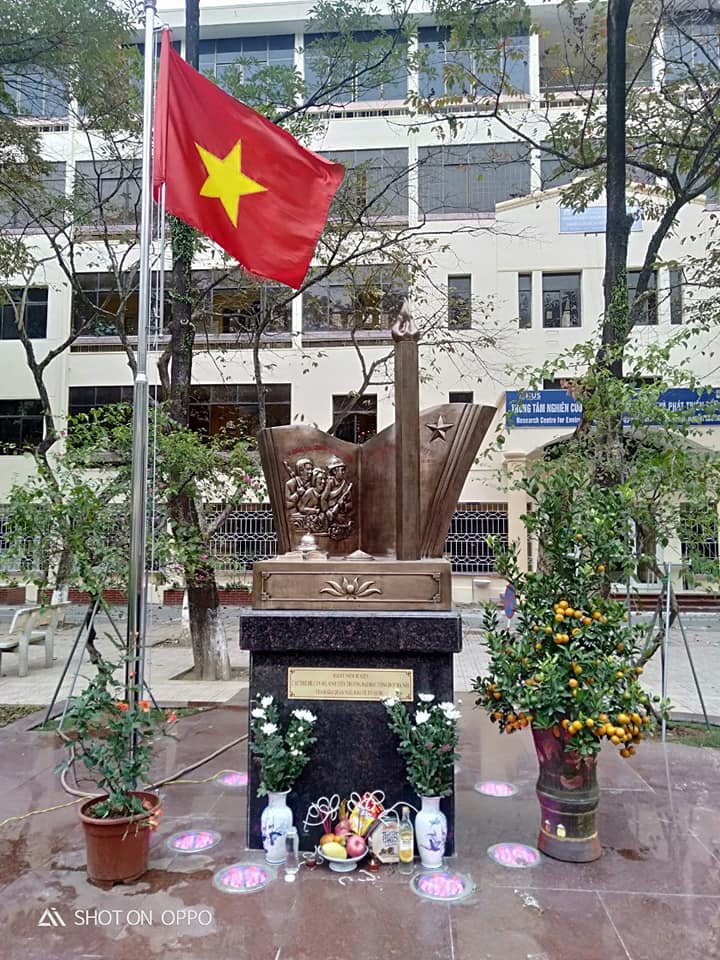Having just finished their second semester exams, students from universities in the North went for a health check-up, preparing to leave. When entering university, most students are 18 years old enough to join the army, and do not need to “lend their age to the country”. However, many students have to “lend their health”. Many short and light students have to put rocks in their pockets, or ask healthy friends to check their weight and height, “cheating” on their weight and height. There are as many volunteer applications for students joining the army, many of which are written and signed in blood. Writing a volunteer application, most students cannot help but regret their studies. The university entrance exams during the war against the US had a very strict selection ratio, almost “one out of ten”. Therefore, after passing the university entrance exam, most students want to study all the way to get a diploma. But because the Fatherland called, "the enemy forced us to take up arms", there was a general mobilization order, all students who passed the military service were ready to "put down their pens and go".

New students enlisted in September 1971
Before the day of enlistment, I went home to tell my mother that “I am going to the South”. I guessed that motherly love would make my mother worry and cry for me. But no, I looked at my mother’s face, waiting, my mother did not shed a single tear. She just said indifferently: “Going to war is the duty of men in times of chaos”. That night I lay crying silently. I thought: my mother had sold her son to the country. I resented my mother, but I did not know that on the other side of the wall, my mother was also crying silently. Later I found out that my mother had known that I had been selected for military service, so she tried to act tough so that her son could confidently go on his way.
We enlisted in the rainy season. The Red River was rising, threatening to flood the entire capital city. My future comrades and I moved the entire library of the Faculty of Literature of Hanoi University from the first floor to the fourth floor, to prevent flooding. As we carried each stack of books up, we felt uneasy holding the textbooks we had not yet studied against our chests. There were so many books we had not yet read, so many final year textbooks we had not yet studied. We had the idea of taking a sneak peek, putting a few books in our chest pockets, and taking them with us to the battlefield. We knew that the librarian had turned a blind eye, turned his back, creating conditions for us to "steal public property". But then, no opportunistic embezzlement happened. We knew that backpacks for the battlefield had to prioritize guns and ammunition. The library books at that time were all valuable assets, and needed to be kept intact for our friends to stay and continue studying.

6971 alumni of Hanoi National University
To reassure those who went to war, universities announced that they would reserve the students' academic results. Final year students were recognized as special graduates, even though they had not defended their thesis and the school had not yet printed their diplomas. Their transcripts were kept, waiting for the students to return to continue their studies after they had gone to war. Of course, their academic results were reserved, including the "bad" results. There were a few students who were naturally "allergic to foreign languages" and failed the Russian exam, joking with each other: Going to war is also to postpone the Russian exam. And if they die, they will kill two birds with one stone, and will not have to take the Russian exam again.
Our academic results were preserved, our transcripts were kept intact, but there were some subjects in which we were not told how many points we got. That was the case of Professor Nguyen Van Khoa's Western Literature course. The school at that time let our teacher Khoa violate the regulations: not letting students who joined the army know their academic results. He was the Platoon Leader of the Military Intelligence Platoon in the Dien Bien Phu campaign in the past. This former anti-French soldier was given priority by the school in not returning the exam papers to students who went to war. In front of the students who joined the army to say goodbye, the teacher declared: “I will keep all your test papers, not submit them to the teaching staff, wait until you return victoriously to receive your scores and papers. You can rest assured that you will all be given priority to add extra points. This point is outside the Western Literature point. It is the “point of life”. Because there is a biggest subject, the biggest curriculum, which is the subject of love for the Fatherland, you have studied it, and when you go to war, you deserve a score of 10. I will keep your test papers in the bookshelf, waiting for you to return victoriously”. We still remember the teacher’s words today. By keeping the test papers and not returning them, he created for us amulets, keeping a belief, a hope to return to the rear, when we held guns on the front lines. We also did not expect that after the complete liberation of the South, when we returned to school, met the teacher, received our papers, it was not enough. Some of the papers that got the highest scores, without the need for “priority points”, were not recognized. Teachers and students cried together. Our friends were left behind on the battlefield.

Monument to pay tribute to the cadres and students of Hanoi University who joined the army and participated in the resistance war against America to save the country.
In the army that day, we also had teachers accompanying us. They were soldiers “older” than us, but easily recognizable by their glasses and guitars on their shoulders. Leaving the lecture hall, teachers from many universities were organized into a company of teaching staff. That was the company with the highest “brainpower” and very rich in artistic talent. This company of teachers had established a light orchestra, thanks to dozens of non-professional artists but talented men who went to war.
September 6, 1971 has gone down in the history of Vietnamese universities as the largest military launch event of universities in the North. The night of September 5 and the morning of September 6 that year, we knew it was a sleepless autumn night for many universities. The enlisted students received from their girlfriends handkerchiefs embroidered with blue daisies, notebooks with souvenir notes, envelopes and “one and two cent” stamps that they did not know they would be able to use up in their lives as soldiers on the battlefield. To overcome sentimental feelings, regrets, and sadness, everyone focused on talking about the Fatherland. And everyone sympathized with the very new verses of the war poet Pham Tien Duat:
It's too early to leave today.
The country has been marching for decades.
I came today is not late
The country is still at war.
Author:Mac Yen
Newer news
Older news